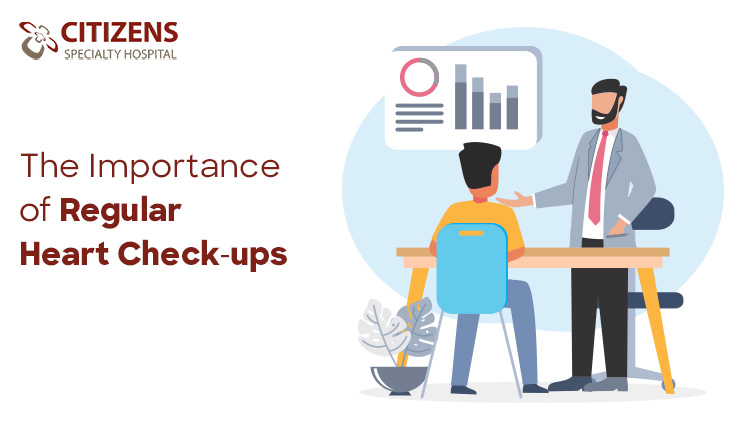
Heart disease is the leading cause of death globally, claiming 17.9 million lives annually. Despite the grim reality, we often forget to prioritize our heart health in our day-to-day lives. Regular heart check-ups are essential for prevention and early detection, as they help detect any underlying issues that may go unnoticed until it's too late.
What is a Heart Checkup?
A heart check-up consists ofessential tests to monitor your health and identify potential problems early. During a heart check-up, your doctor at a cardiology hospital will usually take your blood pressure, check your cholesterol levels, and ask about your family history of heart disease. They may also do basic tests such as an electrocardiogram (ECG) to check for irregularities in your heartbeat.
Why is a Heart Checkup Important?
Most people know that heart disease is India's leading cause of death. What many don't realize, however, is that heart disease is often preventable with regular check-ups and screenings.
A heart check-up will help your doctor assess your risk for developing heart disease and recommend lifestyle changes or medications to help prevent it. Even if you feel healthy, getting regular heart check-ups is essential. Many forms of heart disease have no symptoms until they've already caused significant damage. By getting regular check-ups, you can detect any abnormalities at an early stage and make lifestyle changes or start treatment before severe damage occurs.
If you're over 40 or have other risk factors for heart disease, it's essential to get regular check-ups. Talk to your doctor at a cardiology hospital about how often you should be screened, and make sure to schedule appointments accordingly. Taking care of your heart now could save your life down the road.
How Often Should You Get a Heart Check-up?
A heart check-up is an essential part of preventative care. While there is no definitive answer for how often everyone should get one, adults over 20 get a cardiovascular disease risk assessment at least every four to six years. This assessment includes a physical exam, family history, and a cholesterol test. If you have risk factors for heart disease, such as high blood pressure, diabetes, or a habit of smoking, you should get checked more frequently.
The Importance of Keeping Your Heart Healthy
Your heart is one of the essential organs in your body. It pumps blood throughout your body, carrying oxygen and nutrients to your cells. Keeping your heart healthy is vital to your overall health.
Some risk factors for heart disease include smoking, high blood pressure, high cholesterol, diabetes, and obesity. Making healthy choices can help reduce your risk of developing heart disease.
Quitting smoking, eating a healthy diet, exercising regularly, and managing stress are all important ways to keep your heart healthy. Regular cardiac check-ups with your doctor can also help identify potential problems early on.
Your doctor will likely perform a physical exam and order some tests to check for heart disease. These may include an electrocardiogram (EKG), echocardiogram (echo), stress test, or cardiac catheterization (angiogram).
If you have risk factors for heart disease or experience any symptoms of heart disease, such as chest pain or shortness of breath, it's important to see your doctor immediately. Early detection and treatment of heart disease can save your life. It's best to book an appointment at the best cardiology hospital in Hyderabad.
Citizens Specialty Hospital is the best place to go if you need cardiology services. They have some of the most experienced and qualified cardiologists in the country on staff, and they are equipped with the latest and most advanced technology. From angioplasty to pacemakers, they can handle all cardiology needs. If you need top-notch cardiology care, Citizens Specialty Hospital is the best cardiology hospital in Hyderabad.
In Conclusion
Regular heart check-ups are essential for maintaining good cardiac health. The earlier potential issues can be identified, the better your chances are of avoiding serious illnesses and complications later. If you haven't had a heart check-up recently, now is the time to take action and ensure that your cardiovascular system is in good condition. Taking care of your heart today will help ensure that it continues to serve you well in the future!